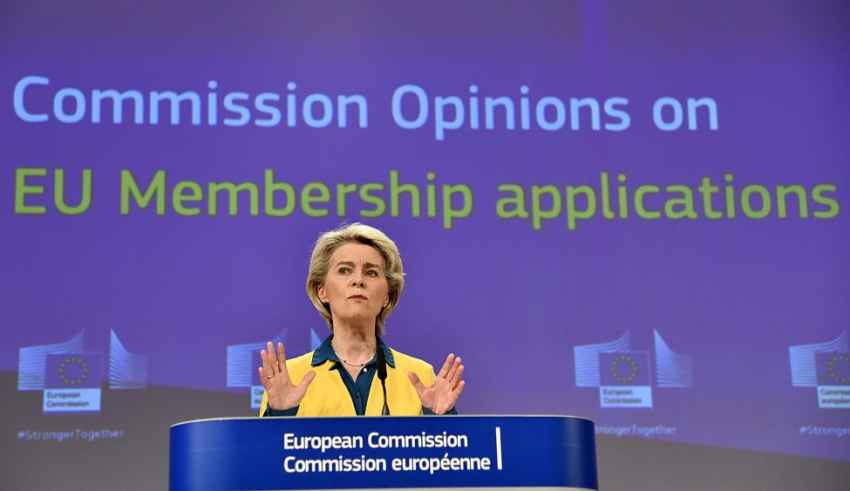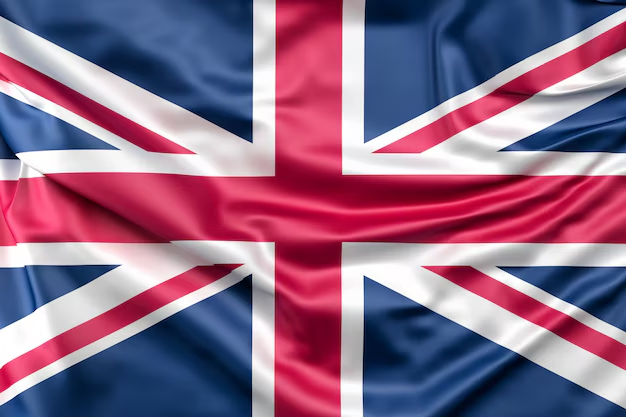
On June 23, the European Union decided to put Ukraine on the route to EU membership, acting with unusual speed and unanimity to drive the embattled country further away from Russia’s influence and closer to the West. At a summit in Brussels, leaders from the EU’s 27 member states obtained the necessary unanimous agreement to award Ukraine candidate status. This initiates a membership process that might last years or even decades. The head of the European Commission stated that the accession process would be “merit-based” and “by the book,” and that official discussions would not begin until prerequisite measures were implemented. These include strengthening the rule of law and fighting corruption. The Commission will conduct an assessment at the end of 2022. Ukrainian President Volodymyr Zelenskyy expressed his appreciation on Twitter, declaring, “Ukraine’s future is within the EU.” “This is a win. We’ve been waiting for 120 days and 30 years,” he said on Instagram, alluding to the length of the conflict and the decades since Ukraine gained independence following the fall of the Soviet Union.
There are several important notions to consider here. First, the status of a candidate does not automatically trigger the commencement of discussions for Ukraine’s accession to the European Union: that will be the next stage, and it must be negotiated. North Macedonia, for example, has had a candidate status since 2005, but actual accession discussions with it began only in March 2020. The reason was a conflict between two of its EU neighbors, Greece and Bulgaria. Second, a country can remain a candidate for an indefinite period of time. When the European Commission made its proposal on Ukraine’s candidate status, it set specific targets for the country to meet in order to continue its path to EU membership. There are numerous issues there, including the passage of new anti-corruption legislation, money laundering, and concerns about media independence. All of these requirements were also put in place, so that nations that questioned the appropriateness of making Ukraine a candidate for EU membership would not oppose the decision at this early stage.
There are several questions that should be answered in order to comprehend the reasons and consequences of the EU’s decision. Is the decision to grant Ukraine candidate status more of a gesture of support for a country fighting Russian aggression, or a genuine beginning to the process of Ukraine’s entrance to the EU? It is probably both. At the same time, one should keep in mind that any country’s entrance to the EU is a lengthy process. Of course, the agreement to give candidate status should be viewed in the light of Russian aggression. From the current perspective, the European Union’s support for Ukraine is symbolic. However, it is also a rather practical solution, a way of reviving the Ukrainian economy and implementing the required changes – when that becomes feasible. Was it likely that certain EU nations would vote against Ukraine’s candidacy? Some skeptical nations, like the Netherlands and Denmark, have withdrawn their objections. However, there is still Hungary, with its “special” ties with the Kremlin, Cyprus, and possibly Greece. On the other hand, the fact that the leaders of the three largest EU nations – Germany, France, and Italy – recently made a joint trip to Kyiv suggested that among European leaders, there was hope that they would be able to obtain a consensus of all Union members on candidate status for Ukraine.
For the first time, a country engaged in a full-scale war is awarded candidate status. Is this an indication that the European Union is reconsidering its stance on security issues? The issue of Ukraine’s territorial integrity and boundaries is not critical right now; it will become important much later. However, the European Union is revising its position on expansion strategy in general. This matter is being negotiated more actively with Western Balkan countries. The former EU enlargement rules will likely be regarded ineffective because they are not up-to-date, and it is time to reconsider them. In the event of an expedited admission of Ukraine and Moldova to the European Union, will there not be many members who, in terms of economic growth and democracy, fall well short of the true European level? There are several possibilities for how this procedure may appear dependent on the actual scenario in the various nations asking for membership in the future. For example, French President Macron has proposed creating a special status for nations who are on the verge of joining the EU but have not yet satisfied all of the conditions. He believes that such nations may, for example, attend meetings of European organizations but not have a vote. Another possibility is gradual acceptance. For example, if Ukraine or another nation meets all of the standards in the sphere of commerce or digital technology, it will be able to completely integrate in this specific sector of the European market.
What if the Russo-Ukrainian war lasts for years? In this scenario, complete EU membership becomes a rather distant goal, although that does not mean that changes cannot be initiated. If the war continues, it will undoubtedly be concentrated in the East and South of Ukraine. Economic rehabilitation and required adjustments might begin in the area of the country that has not been directly damaged by the war. Membership in the EU will become an added incentive. In terms of security, in such a scenario, NATO nations will most likely continue to provide comprehensive political and military-technical support to Ukraine, as well as training programs for the Ukrainian military.
References
Amaro, S. (2022, June 17). The European Union is about to weigh in on Ukraine membership. but the process won’t be easy. CNBC. Retrieved June 23, 2022, from https://www.cnbc.com/2022/06/08/why-ukraine-membership-of-the-european-union-is-not-easy.html
Amaro, S. (2022, June 23). European leaders formally accept Ukraine as a candidate to join the EU. CNBC. Retrieved June 23, 2022, from https://www.cnbc.com/2022/06/23/ukraines-eu-candidate-status-decision-kosovo-says-eu-needs-to-do-more.html
Pitchers, C. (2022, May 11). What do we know about Macron’s idea for a two-tier Europe? Euronews. Retrieved June 23, 2022, from https://www.euronews.com/my-europe/2022/05/11/what-do-we-know-about-macron-s-idea-for-a-two-tier-europe
By The European Institute for International Law and International Relations.














